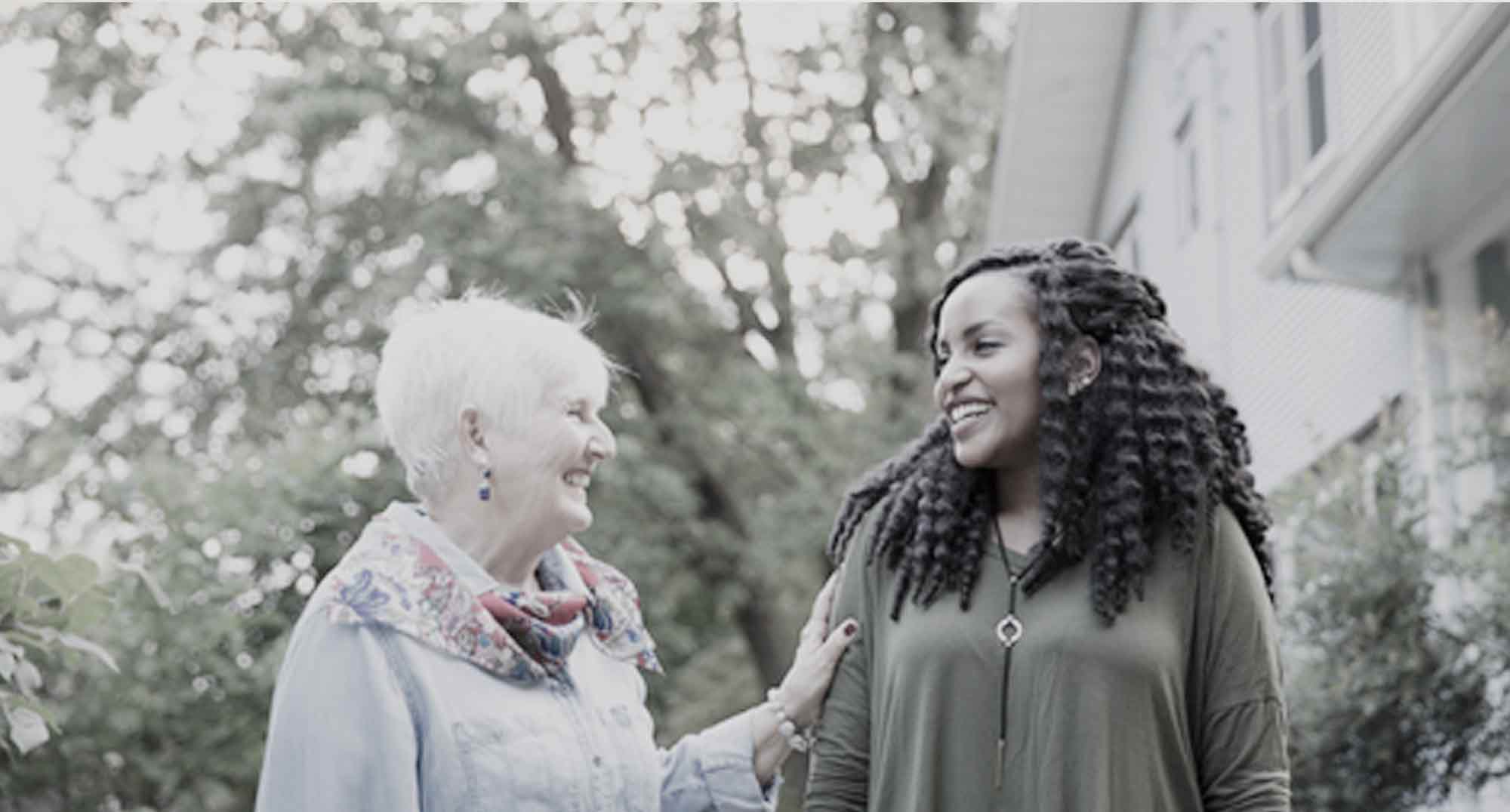LINDA BARRETT|GUEST
Recently, I attended a women’s retreat. My roommate was especially surprised when two of our younger condo-mates asked to meet with us regularly. I’m old—like Medicare and retirement old— but I’ve mentored before, so I wasn’t completely shocked. However, my friend, who is 15+ years younger than me, was stunned.
Why?
Why were we amazed that young Christian women wanted to tap into the godly wisdom of mature women?
The Courage to Ask
Like you, I’ve lived a life in Christ, and I have experience. If I was a book, I’d have chapters people could read: mother, teacher, wife, and rebel; or other chapter headings might be: lonely, ashamed, or fearful. I’ve trusted in God’s power to transform me. I’ve walked with God—imperfectly—but I have walked with him, and that authorizes me to let others read what grace has written into my life.
For years, I wanted a mentor. I went to bible studies and prayed that someone would come alongside me to give a hint about what to do—with my kids, my husband, and my growing, stumbling faith. No one offered—until I was forty-one.
I never asked. I didn’t have enough confidence to risk being denied. I was like a teenager asking someone out. I was terrified of rejection and afraid I didn’t matter enough for someone to say, “yes.” That was one reason I was impressed with these two women; they had the courage to ask.
I believe the biggest obstacle to inviting others into a mentoring relationship is fear.
The Obstacle of Fear
Older women fear they don’t have enough biblical wisdom and knowledge and will say something wrong. Ashamed of our brokenness, we fear transparency. Generational change (technology, child rearing, communication, culture) makes us feel obsolete. We feel foolish and labor under the false belief that we don’t matter and that our wisdom isn’t needed or wanted. We feel passé.
Younger believers fear they are too much—too much worry and angst. They fear their brokenness and inability to handle life biblically. They see their sin and volatile emotions and wonder if they are still accepted in the Beloved. When they don’t “feel” close to God, they question their faith. Does God answer prayers—especially theirs? They fear parenting, childlessness, illness, singleness, and death. They want guidance.
It’s a privilege to bring hope into another’s life. To look someone in the eye and say, ”I’ve been there and this is how God showed up.” Or to ask, “Have you considered this?” Or maybe simply, “I’m sorry,” and offer the gift of prayer.
We are not called to be perfect or better than someone else (that would be pride). We simply need to be available with our story. We invite people to see God’s fingerprints on our lives and become willing to show how God used our troubles and fears—or how we are still waiting in hope for victory. We are all unfinished stories, after all.
Dealing With Our Fear
To deal with fear, John teaches us, “There is no fear in love; but perfect love casts out fear, because fear involves punishment, and the one who fears is not perfected in love.” (I John 4:18 NASB)
Being perfected in love involves knowing God’s love for me as well as understanding his love for another. We receive eyes of compassion for the stumbling wife and mother as well as the unmarried or newly-single woman. Love and mercy move us to deny our fears and embrace courage. It gives us the grace to open our lives and let another read the chaotic yet magnificent story God is writing.
Scripture reminds us that discipleship/mentoring is part of our mandate and something we’ve been empowered to do. (God enables what he commands.)
Titus 2 is direct about woman-to-woman training. But there are other places in scripture telling us:
- to encourage one another. I Thess. 5:14 We urge you, brethren, admonish the unruly, encourage the fainthearted, help the weak, be patient with everyone.
- to seek the good of our neighbor. (I Cor. 10:24). Let no one seek his own good, but that of his neighbor.
- to comfort like we find comfort. (II Cor. 1:4) Blessed be God…who comforts us in all our affliction so that we will be able to comfort those who are in any affliction with the comfort with which we ourselves are comforted by God.
- to “bear one another’s burdens and thereby fulfill the law of Christ”. (Gal. 6:2)
We all have fears, but as seasoned believers, we carry the weight of responsibility. How do we begin?
Start by praying. I’ve had numerous mentoring groups, and that’s how it begins. The next article will go into practical ideas about how to begin the process, but for now, pray. Ask God for renewed love and courage to obey, and begin to look around and ask, “Who needs MY compassion? Who needs to read MY book? Who might be God’s target reader?” Don’t let fear be an obstacle to investing in the life of another.
Editor’s Note: This post is the first in a series of articles about mentoring relationships.
About the Author:
Linda Barrett
An Alabama native, Linda Barrett attends Oak Mountain Presbyterian Church where she puts her ever-growing faith to work through teaching, mentoring and ministering in various positions of leadership. She has published several articles and devotionals and co-authored a unique Bible study for new-moms called: Engaging Motherhood: Heart Preparation for a Holy Calling. Linda blogs at: invitationtowonder.wordpress.

